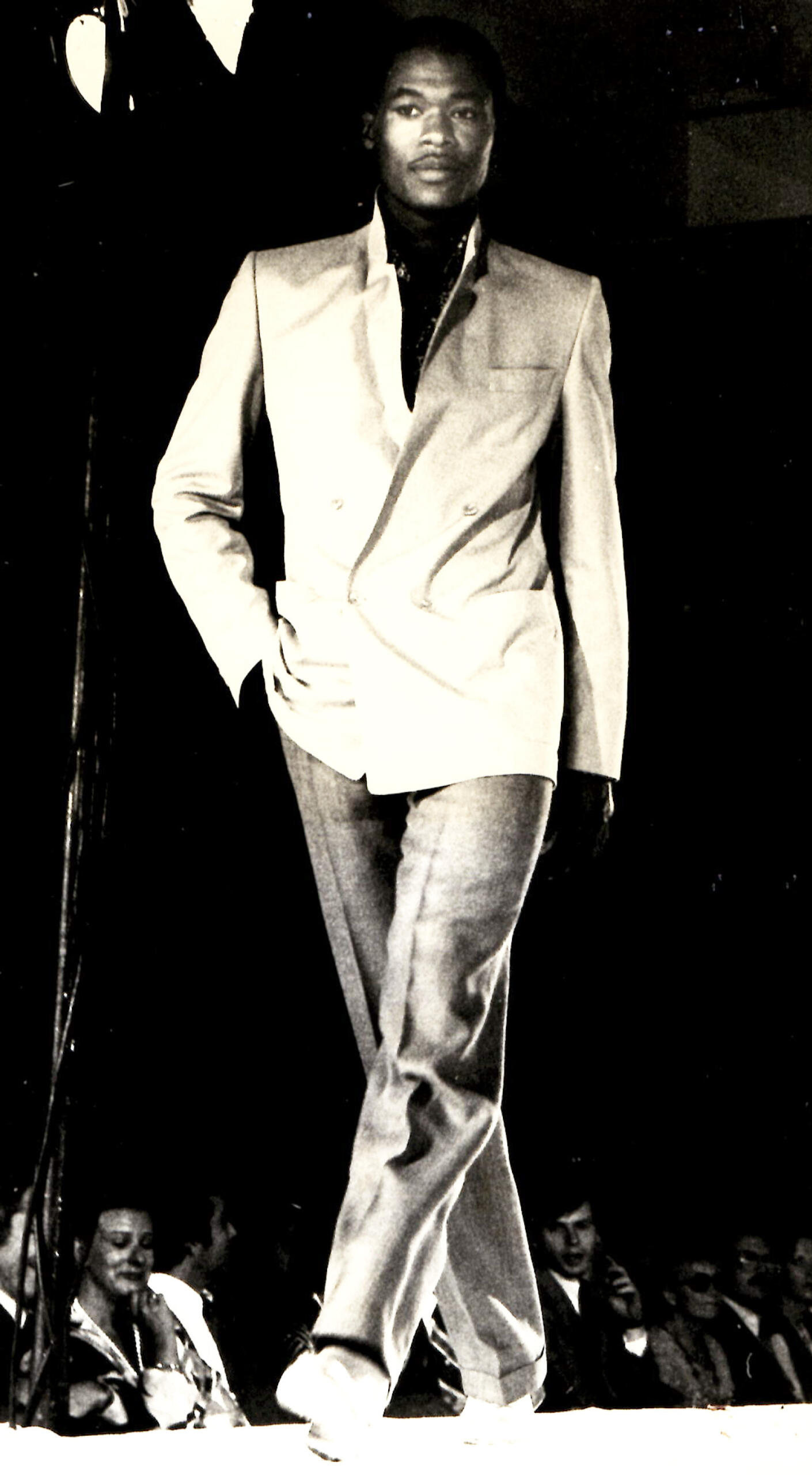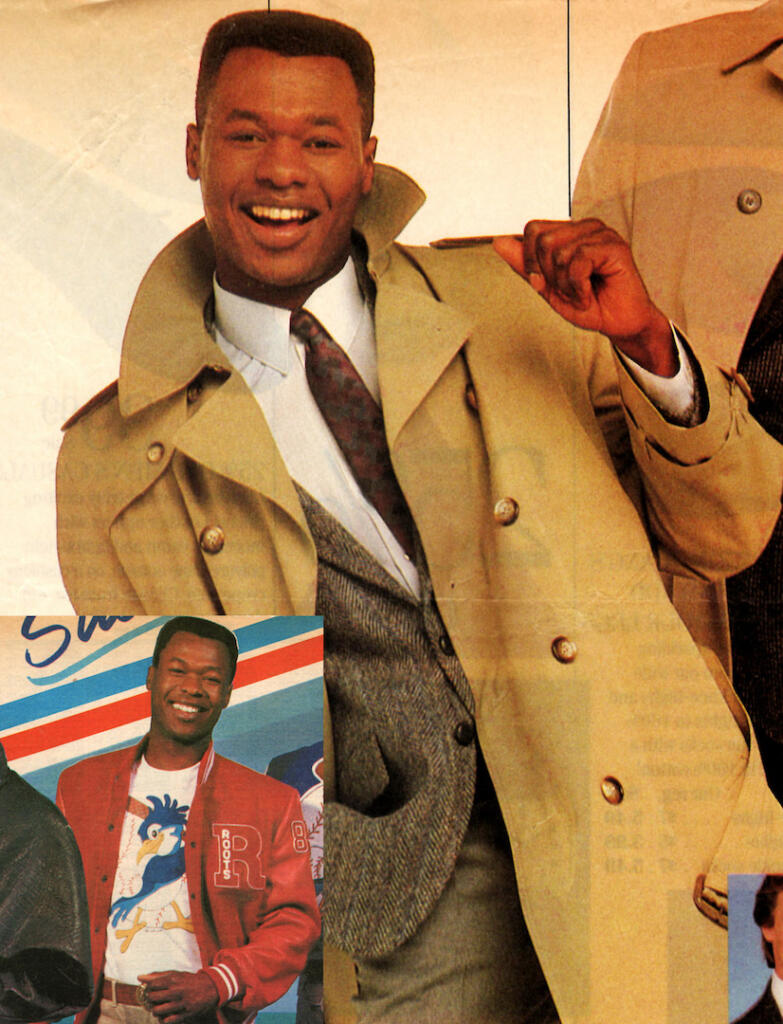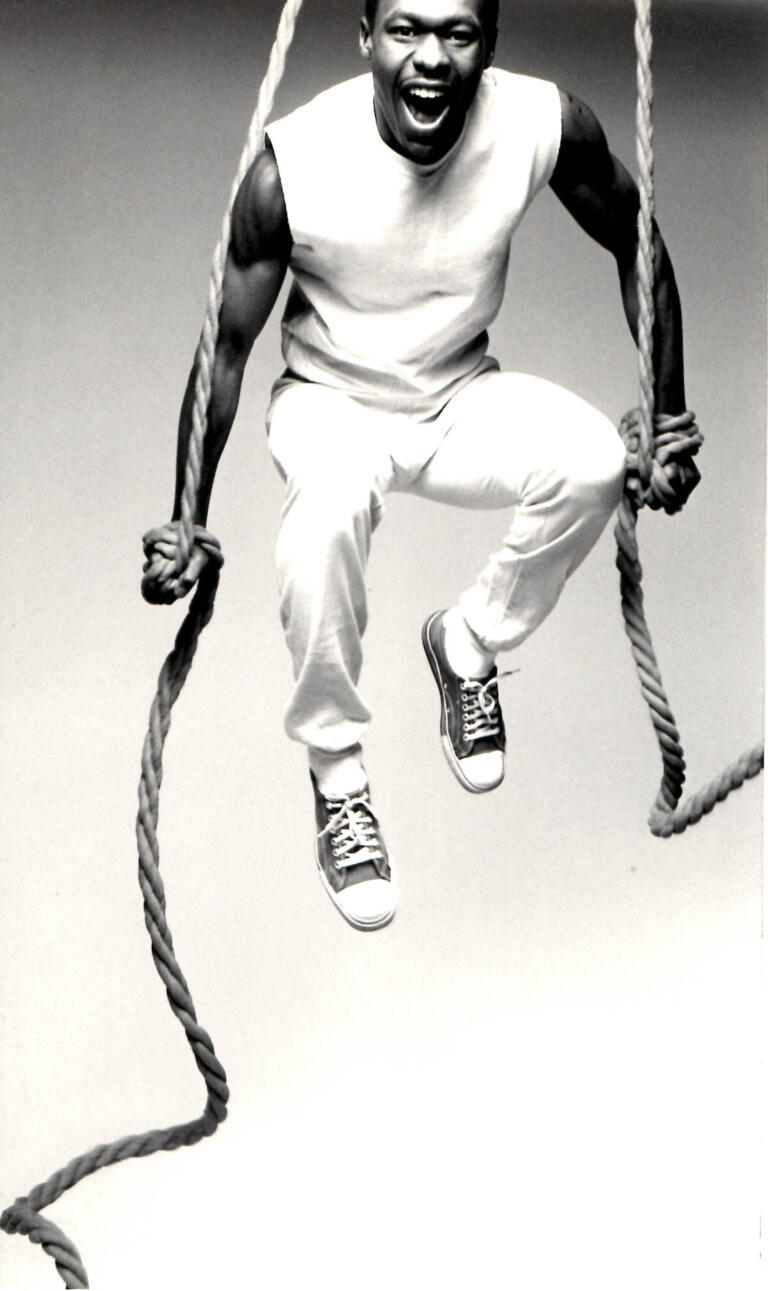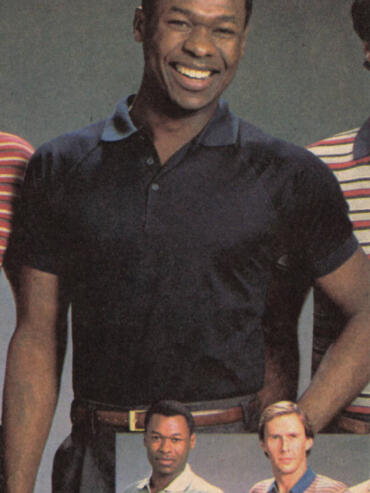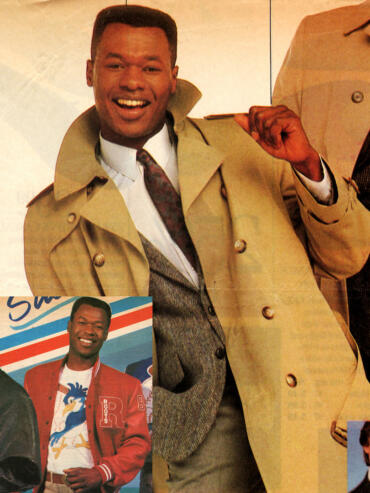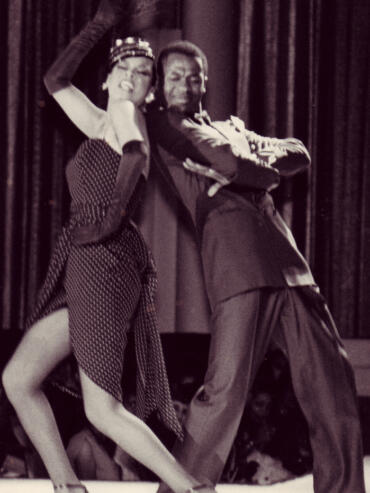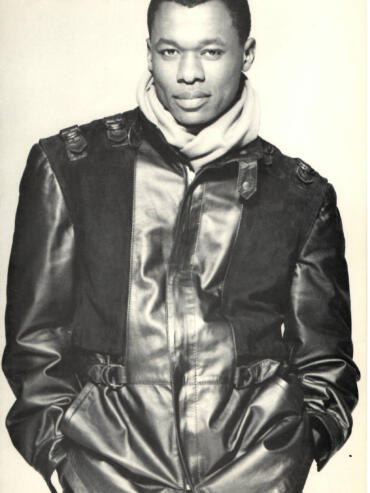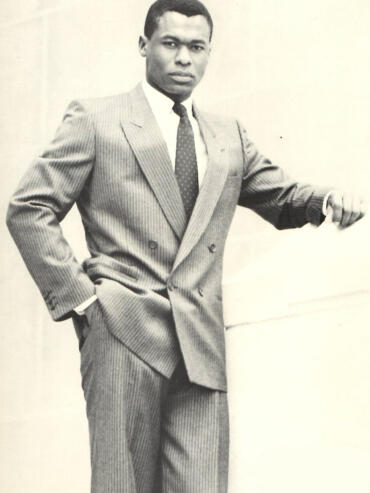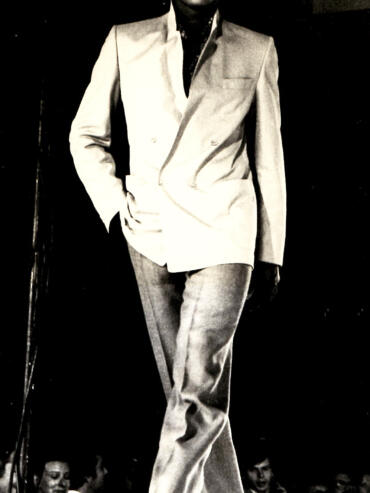June 2022
Month 20xx
Nishat Chowdhury & Madison Dolman
Charmaine Gooden
Carol Martin
Visionary, powerful, infectious and engaging. These words were used by friends to describe the man sitting on the other side of the screen. Perched at his desk, he is dressed in a white crewneck, facing away from the gold-rimmed mirror, which illuminates the office space.
Henry is the managing director of Mode Canada Rocks and chief executive of Delectant Media Inc. His aim is to promote equity within the fashion, arts and entertainment sectors, elevating Canadian creatives and brands. In fact, he’s been doing this his entire career.
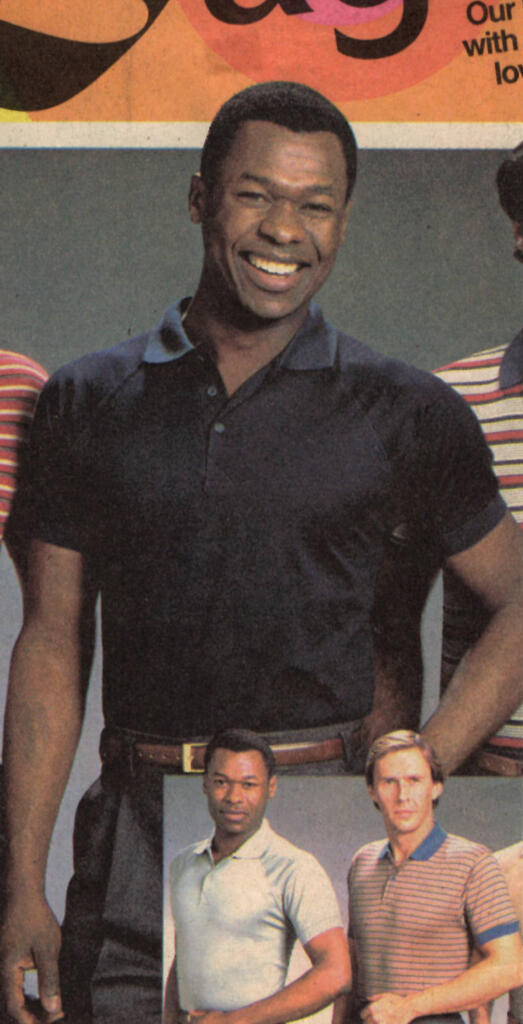
Early Life and Career
Len D. Henry was the first of six siblings to immigrate from May Pen, Jamaica, to Toronto in July of 1968.
While Henry calls the shots now, it hasn’t always been like this. Back in the late ’70s and early ’80s, Henry modelled for Judy Welch and then Bookings. As popular as these agencies were, Henry couldn’t shake off the category of “friendly Black boy from next door’, “I would get a lot of [cataloge ] work. I was a nice guy, okay looking,” said Henry, though one fashion editor thought he was “too black” for editorial feature stories.
This wasn’t the first instance of racism Henry would experience in his lifetime. After being challenged by white clients, whilst deemed “extremely talented” by creatives, Henry sought to make a different name for himself, stating that “It wouldn’t matter what I looked like operating from behind the scenes.”
Henry had been awarded a dance scholarship by the iconic Canadian dancer, teacher and choreographer, Len Gibson, and went on to produce his first fashion spectacle ‘Bronze Magic’ in 1981, showcasing an all-Black cast of models and designers to rave reviews. He remembers using Broadway shows, like West Side Story, as the framework for an event called Theatromania for Bookings, bridging the gap between theatre and fashion.
And the entire Canadian fashion industry stood up and took note. Soon he was producing big shows for Aveda, GQ, Paul Smith, and the iconic American designer, Patrick Kelly, to name but a few. He quickly developed close contacts with many who loved his productions, which inspired him to leave modelling completely by 1990.
Many of Henry’s opportunities stemmed from his relationship with the late Jamaican-Canadian couturier, Winston Kong, who also acted as a mentor to him. Both men bonded over their mutual heritage, opera, culture and Henry’s delicious recipe for curried chicken and rice and peas. It was Kong who, when asked by Henry why he designed using colour as boldly he did, encouraged him endearingly, “Lenny I’m Jamaican.” Henry learnt in that moment “you bring you.”
This special section creates a photo next to a pull-quote
“I needn’t make it a Black show, but certainly I’m using idioms, imagery and ideas that I was born with.”
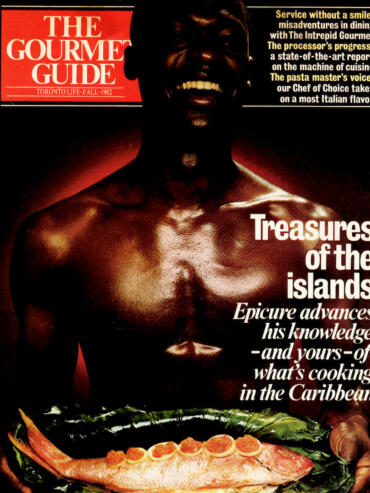
Breaking Barriers
Henry spent the ’90s working in collaboration with fashion designers, retailers and wholesalers such as SlavinRaphael. The president, Steven Slavin, describes Henry as his “brother from another mother” after more than 30 years of friendship and partnership.
Slavin worked closely with him on fashion shows at the Art Gallery of Ontario, St. Lawrence Hall and Eaton.s starring Cindy Crawford. In preparation for his fifth show with Henry, Slavin recalls having a disagreement about the music for the fashion show. Shortly after Henry explained his vision for the show, with the inclusion of songs by the band Supertramp, Slavin said: “Len, enough. I don’t even know why we questioned you. It’s perfect.”
Henry was ambitious in hoping that “fashion would piggyback on music,” and believed the most rewarding part of his job was the ability to get creative.
In 1992, Henry won a MuchMusic Video Award for directing a music video for the R & B band B-Funn.
He went on to invent FashCam in 2003, with the support of Laurie Belzak. Belzak, a sector development officer of fashion/apparel and design for the city of Toronto, who says that she and Len “go way back.” Henry filmed the first ever fashion movie in Canada, launched in partnership with the City of Toronto and Fashion Television. “My concept was to take a musician and their song and surround that with fashion,” says Henry. “Bringing [them both] together, flipping the music video script.”
Throughout the years, Belzak says that Henry’s work would always be “fresh, new and interesting because that’s so important in fashion, but it would also never overshadow what was happening on the runway.”
Next, Henry moved on to television. From 2010 to 2012, he was the producer and host of Quebecor Media’s StreetSeen, fashion expert on W Network’s How to Look Good Naked, Canada and host and mentor on Style Network’s Wedding Dress .
Influence and Legacy
In 2013, Henry launched Delectant Media Inc. to help amplify the voices of Canadians he had met over the years.
In 2020, Henry launched the not-for-profit company, Mode Canada Rocks, which produced two ‘important conversations’ about diverse voices at the creative table: BLACK CANADIAN STYLE: Here’s the Thing… and INCLUSION REVOLUTION.
“I’ve been very lucky to have had opportunities to apply my own instincts, my own story, my own Jamaicaness, [as well as] my own unique sense of colour, music and lighting,” says Henry. “I needn’t make it a Black show, but certainly I’m using idioms, imagery and ideas that I was born with.” Because, as Winston Kong has indelibly imprinted on him, “I’m Jamaican.”
“I would get a lot of [catalog] work. I was a nice guy, okay looking,” said Henry, though one fashion editor thought he was ‘too black’ for editorial feature stories.
About the authors:
No posts found!
No posts found!


